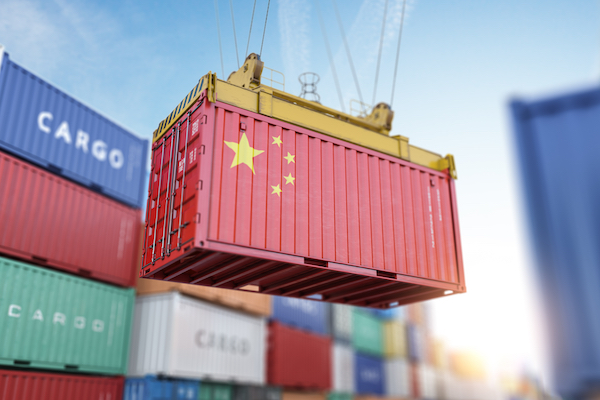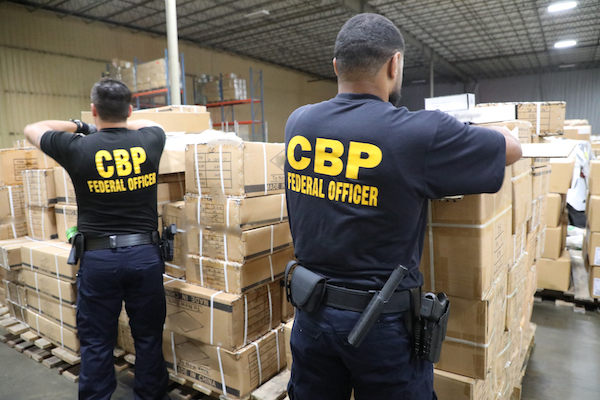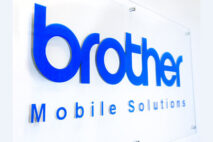At the beginning of June, the United States government rocked the digital imaging industry by announcing it was banning imports from one of the industry’s leading Chinese suppliers—Ninestar Corporation (see “Ninestar Imports Banned by U.S. Government Due to Forced Labor Concerns”). Third-party supplies vendors and hardware OEMs alike source products from Ninestar, so it seemed the embargo would dramatically alter the U.S. market.
It has been nearly two months since the ban went into effect, and, so far anyway, the results have been less dramatic than expected. Goods from Ninestar still remain widely available in the United States. There is no lack of the Chinese firm’s products selling online in the country, including on some of the largest e-commerce site operating in the United States such as Amazon.com and Walmart.com. While it may seem like everything is normal, we are beginning to see signs that the Chinese firm’s business is slowing, although not as profoundly as one would expect.
Background
On June 9, the U.S. Department of Homeland Security (DHS) announced a ban on the importation of goods manufactured by Ninestar Corporation and eight of its subsidiaries, including:
- Zhuhai Ninestar Information Technology Co. Ltd.;
- Zhuhai Pantum Electronics Co. Ltd.;
- Zhuhai Apex Microelectronics Co., Ltd.;
- Geehy Semiconductor Co., Ltd.;
- Zhuhai Pu-Tech Industrial Co., Ltd.;
- Zhuhai G&G Digital Technology Co., Ltd.;
- Zhuhai Seine Printing Technology Co., Ltd.; and
- Zhuhai Ninestar Management Co., Ltd.
After investigating the Ninestar firms, the Forced Labor Enforcement Task Force (FLETF), an interagency group led by DHS, determined that the nine companies had violated the Uyghur Forced Labor Prevention Act (UFLPA). The act, which was implemented in June 2022, prohibits goods from being imported into the United States if they are produced in the Xinjiang Uyghur Autonomous Region or made with forced labor by minority workers from Xinjiang or other regions. Regardless of country of origin, Section 307 of the Tariff Act of 1930 prohibits the importation of any product made with forced labor, which it defines as: “All work or service which is exacted from any person under the menace of any penalty for its nonperformance and for which the worker does not offer himself voluntarily” (see “A Closer Look at the UFLPA Ban on Ninestar Goods and the Impact So Far”).
The FLETF placed Ninestar and its eight subsidiaries on the UFLPA Entity List after finding that they had worked to “recruit, transport, transfer, harbor or receive forced labor or Uyghurs, Kazakhs, Kyrgyz, or members of other persecuted groups out of Xinjiang.” Organizations on the UFLPA Entity List are subject to the “rebuttable presumption” that forced labor was used “wholly or in part” to produce the goods that they market.
As explained in a DHS post in the Federal Register, the daily journal of the U.S. government, there is a way for Ninestar and its subsidiaries to seek removal from the UFLPA Entity List. Listed firms “may submit a request for removal (removal request) from the UFLPA Entity List along with supporting information to the FLETF Chair.” After a review of the submitted materials, an entity may be removed by majority vote of the FLETF member agencies. The final decision on a request is not appealable, but the “FLETF will consider new removal requests if accompanied by new information.” As far as we know, no firm has yet to be removed from the UFLPA Entity List.
U.S. Customs and Border Protection (CBP) is charged with enforcing the UFLPA by investigating and acting on allegations that imports have been made with forced labor and issuing Withhold Release Orders (WRO) as warranted. According to data posted on the CBP website some 4,651 shipments with a value totaling over $1.6 billion had been subject to UFLPA reviews or enforcement actions between the time the UFLPA went into effect in June 2022 and June 2023. Of that total, 872 shipments worth $57 million had been denied entry and as of this writing nearly 2,000 shipments worth approximately $780 million were pending.
As one might expect, the Chinese government has strongly condemned the UFLPA. While organizations from around the world, including the United Nations, have condemned the government of the People’s Republic of China (PRC) for using forced labor and exploiting Uyghurs and other minority groups, the PRC has dismissed these claims as merely anti-Chinese rhetoric propagated by the U.S. government.
Despite the Chinese’s government denials of forced labor, the UFLPA Entity List continues to grow. DHS announced on August 1 that the Chinese battery maker Camel Group and Chenguang Biotech Group, a spice and extract company, would be banned from exporting to the United States because they use forced labor. After the DHS announcement, Global Times, an English-language news site operated by the PRC’s People Daily news organization, reported officials in Beijing denounced the ongoing allegations of forced labor in China as part of a larger smear campaign. PRC representatives were quoted as saying such claims “are based on lies and lack an actual basis and transparency.” The UFLPA embargo was termed “economic coercion” and is seen by the PRC government as contrary to international trade rules.
Industry Reaction
The initial reaction to the U.S. embargo placed on Ninestar and its subsidiaries was swift—albeit underwhelming. On June 12, the day DHS began enforcing the ban, Ninestar released a terse statement in Chinese, which we read in translation. The press release said only that the company was aware of the ban and denied that it used forced labor. The statement added that Ninestar was assessing the impact the ban had on the firm’s business and assured investors it would issue additional announcements “if necessary.” We understand that the company has made other public disclosures in China, but the distribution has been limited. To date, we have seen no additional statements from Ninestar other than that issued on June 12. Our inquires to the firm have gone unanswered. We are unaware of any public statements made by Ninestar’s eight Zhuhai-based subsidiaries subsequent to being placed on the UFLPA Entity List. However, two of Ninestar’s U.S. subsidiaries, Lexmark International and Static Control Components, which are not on the UFLPA Entity List, did issue short public statements (see “Ninestar Subsidiaries Begin to React to U.S. Embargo”).
In its statement, Lexmark indicated that it had “stopped shipments from Ninestar and its affected subsidiaries to the U.S.” and vowed to replace the embargoed Chinese firms as suppliers. Static Control said that it respects and follows “the laws of the United States,” and strictly prohibits “any type of forced labor in our supply chain.” While its statement didn’t explicitly state that it would eliminate Ninestar as a supplier, Static Control implied as much, saying it sources its products from a “wide range of suppliers.” As we discuss below, the firm began returning earlier-placed shipments from China that arrived in the United States in July.
We have had numerous off-the-record conversations with representatives from companies known to source products from Ninestar, but as far as we know—apart from a couple companies noted below—few of Ninestar’s customers have commented publicly on the matter. Silence around the embargo is puzzling given the size of Ninestar’s customers and channel partners, some of which are public companies. We understand, for example, that the Chinese firm and certain of its subsidiaries sell goods to large Japanese hardware manufacturers such as Sharp and Toshiba as well as to Amazon and Walmart.
Although most Ninestar customers have remained mum about the embargo, there have been a few exceptions. Xerox, which according our research sources A4 printer technology from Lexmark and a range of A3 and A4 toner cartridges from Static Control, was recently asked about the impact of the ban during the company Q2 2023 earnings call (see “Xerox’s Strong Equipment Sales Fuel Higher Revenue and Operating Profit in Q2 2023”). Xerox CEO Steve Bandrowczak did not offer any specific insight into his firm’s relationship with Ninestar and its subsidiaries and replied somewhat vaguely saying only that Xerox complies with “all regulatory and government requirements around the world.” Explaining the ban had no material impact on the company during the recent quarter, he said, “Going forward we should be just fine.”
North America’s largest cartridge remanufacturer, Clover Imaging Group, was more emphatic in its declaration regarding the use of banned Ninestar goods in Clover products. After Actionable Intelligence reported that a shipment for Clover had arrived in Long Beach, CA, the firm told us it rejected it. According to a statement sent to us from Clover, any SKUs that it produces that might have “used a component from a Ninestar-affiliated entity, Clover immediately canceled and blocked all purchases, and adjusted bills of materials accordingly.”
E-Commerce Is Thriving
While some U.S. importers have undoubtedly severed ties with the banned Ninestar companies, there is no lack of products from the Chinese firm online. Since it was founded in 2000, Ninestar has developed a sophisticated go-to-market strategy, which includes direct sales to consumers along with marketing products through distribution. The company’s flagship third-party consumables brand is G&G, and today consumers can purchase G&G-branded products through Ninestar dealers and channel partners as well as directly from the company through its subsidiaries’ e-commerce sites. In the United States, Walmart.com offers over 100 G&G-branded SKUs, and G&G cartridges are also sold by various small sellers on sites like eBay.com, raastadeals.com, and others.
While G&G is arguably Ninestar’s best-known brand of consumables, the company also sells an assortment of brands online. In fact, some of the most popular third-party cartridges SKUs currently available on Amazon are manufactured and marketed by Ninestar. For example, ink and toner cartridges sold under such brands as Lemero and myCartridge, which are often among Amazon’s top sellers, are imported from Ninestar. Our research further indicates that Ninestar imports and sells dozens of lesser-known brands online in the United States, including INKNI, HiPAGE, TEINO, ZIPRINT, and many others.
When we checked, MYTONER-brand cartridges were available through the Amazon seller Unigraph Office. While some SKUs were not available, we were surprised to find any MYTONER products on Amazon because the trademark is owned by one of the banned companies, Zhuhai Ninestar Management Co., Ltd. In addition, in its 2022 annual report Ninestar Corporation, which is also under embargo, listed Unigraph Tech Co. Ltd. as a subsidiary. Unigraph offered a range of third-party ink and toner cartridges and promoted the product on a MYTONER storefront. Many of the SKUs were available through the Amazon Prime program.
Products manufactured by another banned firm, Zhuhai Pantum Electronics Co. Ltd., were also readily available at various e-commerce sites, including Amazon.com, Newegg.com, and Walmart.com. All the sites offered a range of Pantum printers and MFPs for use in the home or in the office. Amazon listed the Pantum M7102DW as one of its top 100 selling laser printers. A full complement of Pantum OEM cartridges was also available for the machines, and Walmart.com offered extended protection plans through Allstate along with “premium tech support and security” and a remote printer setup service.
Signs of Business Slowing?
At a glance, it appears that the initial impact of the Ninestar embargo on the U.S. market has been slight. Clearly, products from some of the banned Chinese firms remain widely available in the region. We are seeing some signs, however, that Ninestar’s U.S. business may be slowing.
Import records from the Decartes Datamyne service indicate that shipments to the United States from Ninestar Corporation and the banned Zhuhai-based subsidiaries have stopped. Regardless, the firm’s Hong Kong-based subsidiary, Ninestar Image Tech Ltd., continues to supply various U.S.-based subsidiaries including Lexmark, Static Control, and Ninestar Technology Company, which is the firm’s main logistics hub based in Chino, CA. While the products have arrived at U.S. ports, it is unclear how much—if any—will make it to market. A representative for Static Control told us the firm rejected its shipments while they were on the water and instructed its customs broker not to present them to CBP for clearance into the commerce of the United States. According to our source, the containers were being held under bond at the port in Norfolk, VA, awaiting reexportation.
This may also be true for Lexmark. Although the company has not responded to our inquiries, we have noted that certain entry-level machines in its GO Line are not available on its website, which may be a sign that it is not being resupplied from China. We are not aware of any shortages at Lexmark’s OEM clients. Sharp, for example, recently announced new color units based on Lexmark engines (see “Sharp Launches A4 Color Lasers Based on Lexmark Engines”).
It appears that Ninestar Technology Company continues to receive shipments from Hong Kong, which may explain why so much seemingly banned product is still available online. In addition to the various well-stocked e-commerce sites we visited, which we understand are maintained by the Chino, CA-based group, we have heard from several distributors that Ninestar has sustained healthy inventory levels since the embargo went into effect and in some cases inventory stocks have increased. It looks like Ninestar Technology Company has had no problem getting the latest products. On July 5, the firm told potential customers that it had released its first remanufactured Epson T222xl and T232xl inkjet cartridges in the United States, and when we checked its website, scores of replacement ink cartridges for HP devices were on sale.
While Ninestar made no mention of the U.S. embargo, it did recently warn investors that during the first half of the current fiscal year its profits were down between approximately 60 and 70 percent year-over-year (see “Ninestar Forecasts Sharp Drop in Profits in H1 2023”). There are various plausible reasons for such a breathtaking drop in profitability so we can’t say for certain the UFLPA ban is to blame. There has been country-wide decline in China’s factory production this year, and the Chinese economy is struggling. As is often the case with Chinese firms, Ninestar previewed its H1 2023 results without offering details about revenue. We expect, however, to learn that the company’s top line suffered when we get the full financial report at some yet undisclosed date in August. Whether it will blame the embargo remains to be seen.
It appears that Ninestar investors are nervous. Since the embargo was announced, Ninestar’s share prices has been under pressure, falling to a 52-week low of CNY 32.0 ($4.49) in late July. As of this writing, the firm’s shares, which are traded on the Shenzhen Stock Exchange under security code 002180.SZ, were selling for CNY 34.92 ($4.87).
We will continue to monitor the markets and report on the current situation. We are eager to see Ninestar’s financial disclosure for H1 2023 and offer our analysis of conditions at the firm.
[Editor’s note: When this article was initially posted on August 3, we wrote that E-Z Ink, Inc., a New York City-based online supplies vendor, was reported to be subsidiary of Ninestar Corp. Carmine R. Zarlenga, a partner with the law firm Mayer Brown, which represents E-Z Ink, informed us, “E-Z Ink is not now and has never been a subsidiary of Ninestar. Ninestar is not now and has never been an E-Z Ink shareholder.” We have removed the reference to E-Z Ink and apologize for any confusion it may have caused.]








